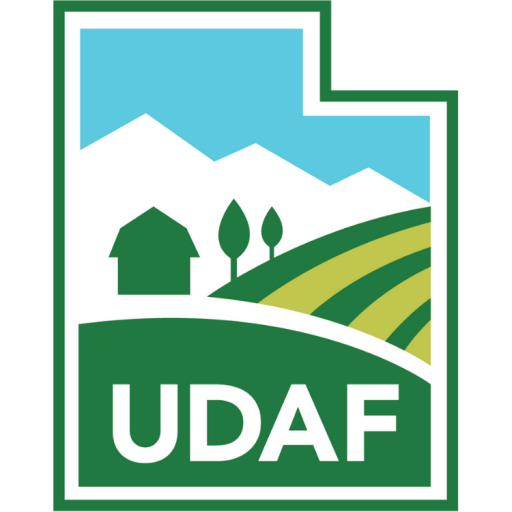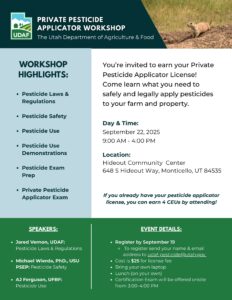The Utah Department of Agriculture and Food (UDAF) is urging all horse owners to vaccinate their animals against West Nile virus (WNV) following confirmed cases across the state. To date, horses in the following 11 counties have tested positive for WNV: Utah (5), Box Elder (3), Cache (3), Weber (2), Davis (1), Uintah (1), Salt Lake (1), Rich (1), San Juan (1), Tooele (1), and Summit (1). Of the confirmed cases, 14 horses have been treated and 6 were euthanized.
“Vaccination is the most effective way to protect horses from West Nile virus,” said State Veterinarian Dr. Amanda Price. “The vaccines are safe, low cost, and provide strong protection, while treatment for infected horses can be very expensive and does not guarantee recovery.”
West Nile virus is spread primarily by mosquitos and can cause serious illness or death in unvaccinated horses. Clinical signs may include stumbling, lack of coordination, muscle twitching, weakness, or paralysis. While some horses recover with intensive treatment, many do not survive;the disease kills up to 35% of infected horses, and up to 40% of the horses that survive never fully recover. UDAF strongly recommends that all horse owners:
- Consult their veterinarian and ensure horses are current on WNV and other recommended vaccinations.
- Take steps to reduce mosquito and bird populations around barns and pastures by removing standing water, regularly washing troughs, and using insect repellents when appropriate.
WNV and other neurologic diseases in horses are required to be reported to the State Veterinarian’s office. The State Veterinarian works with the Department of Health and Human Services, local health departments, and mosquito abatement districts to target areas known to have WNV to reduce the risk to other horses and people.
For more information about equine WNV vaccination and disease prevention, please visit https://ag.utah.gov/documents/Equine-West-Nile-Encephalitis.pdf or contact your local veterinarian. For information on WNV in humans, please visit https://epi.utah.gov/west-nile-virus/.









